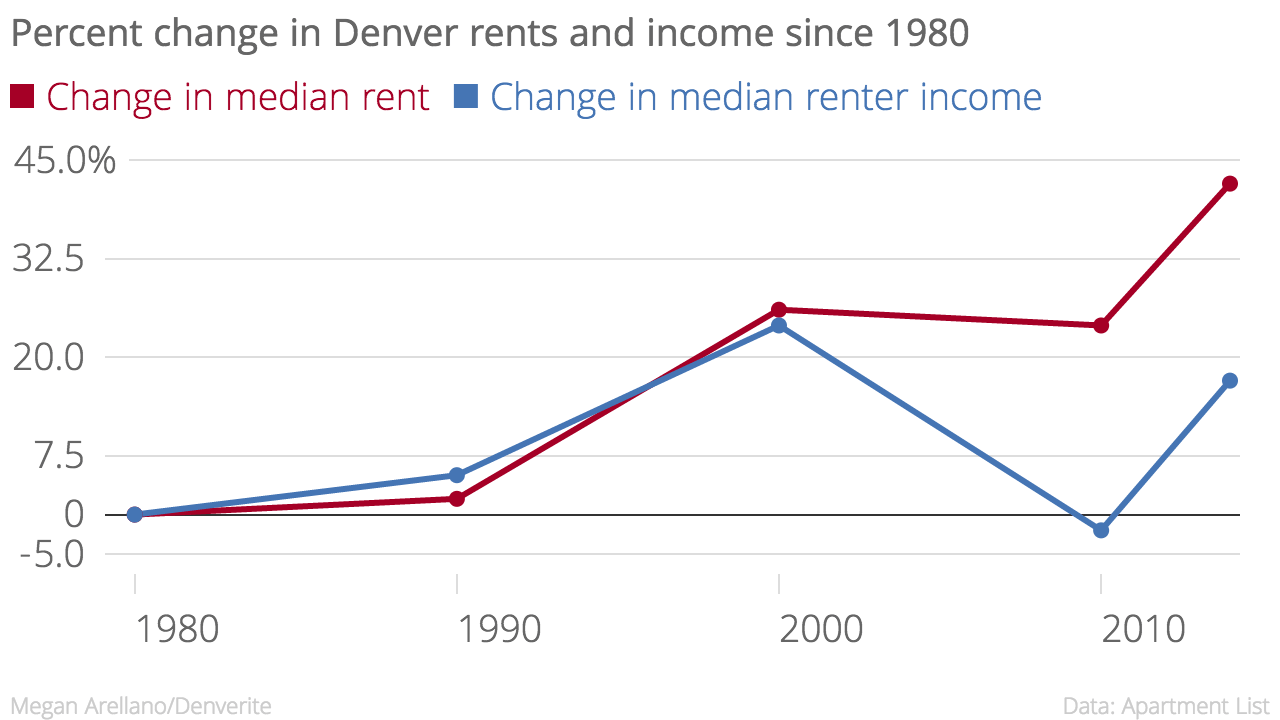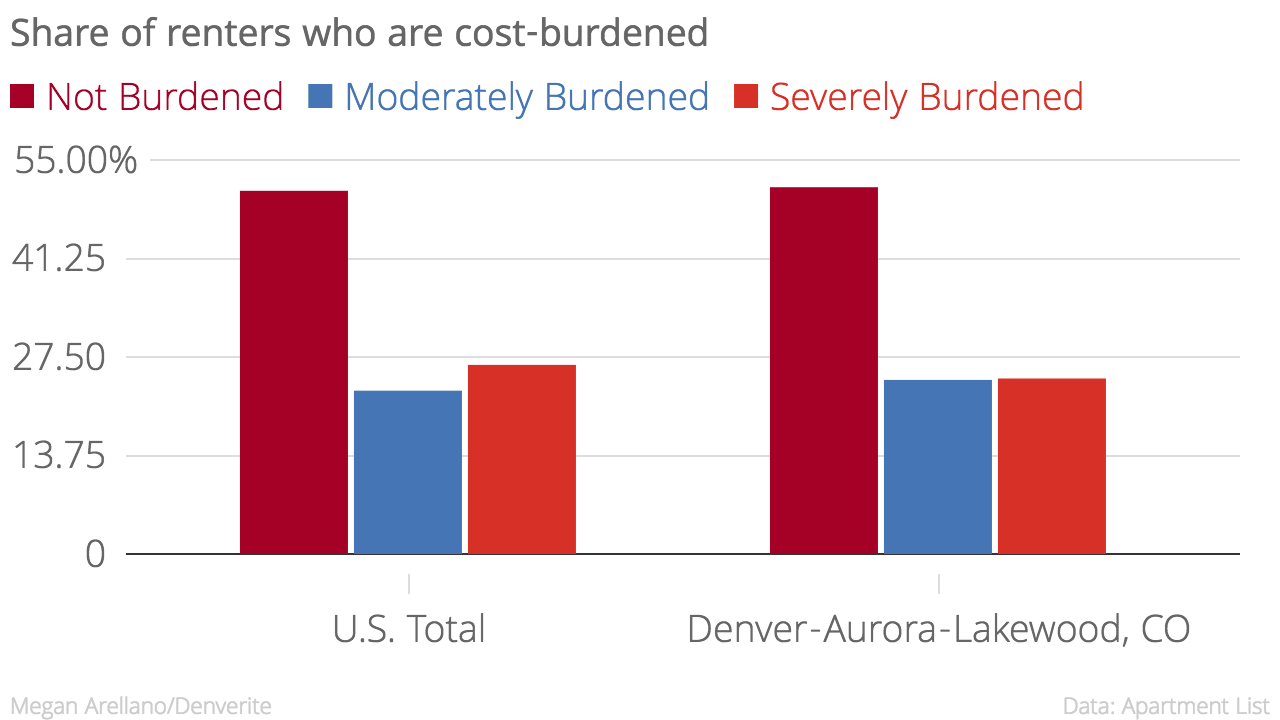Surprise, surprise: rent in metro Denver has gone up 42 percent since 1980, even when you adjust for inflation, says a new report from Apartment List.
OK, now guess how much incomes have gone up in that same time. I'll give you a hint, it's definitely under 42 percent.
Inflation-adjusted renter incomes in Denver increased by 17 percent since 1980, according to the company's analysis of Census data. That's not a lot, but it's sure better than the dip seen after the Great Recession.

The uneven growth of rents and incomes puts us in the majority of the cities studied. As the report states, "the only urban areas where incomes kept pace with rents were Austin, Las Vegas, and Phoenix."
Even the fact that over half of Denver's renters are cost-burdened makes the city fairly average among the 99 metros studied by Apartment List.

But when you look at people whose incomes were under $45,000 in 2014, Denver consistently ranks in the top third of cost-burdened renters in the metros studied.
And of course, what would a housing story from Denver be without a reminder that Boulder is more expensive? According to Apartment List, average rents were $159 more expensive in 2014 than in Denver. That makes it Colorado's most expensive metro.












